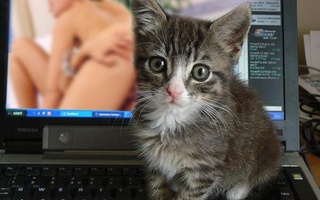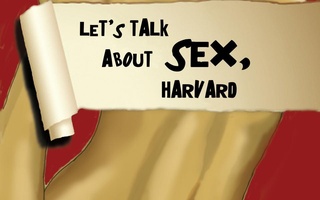MENTAL HEALTH AT HARVARD
To the editors:
In regard to the Feb. 24 staff editorial entitled "Are We Fine," I would like to thank you all for running this call for more peer support. When I was a student at Harvard, I had a lot of problems and ended up in psychiatric institutions five times. In my senior year in 1976, the Phillips Brooks House Association thankfully referred me to one of the very few grassroots groups of psychiatric survivors in the area, and I interned there along with writing my senior thesis on the experience.
Since then, the field of community organizing of, by, and for people who have experienced the mental health system has become my career. I hope that people who are diagnosed with what professionals call "serious" psychiatric disorders are aware that there is a quiet but international grassroots movement of tens of thousands of us who have "been there." I would love to be in touch with anyone with a special passion about creating a peaceful revolution in how we look at mental and emotional well being.
I know breaking the silence about this topic can be challenging on campus. Thank you for calling for this openness. Let's welcome a diversity of perspectives, and transparency. Aren't those often good signs of mental and emotional well being?
David Oaks
Eugene, Oregon
David W. Oaks ’77 is the Executive Director of MindFreedom International.
IN DEFENSE OF PORN
To the editors:
Rachel L. Wagley’s March 28, column “Pornographic Ethics,” blurs the distinction between opinions and facts and misleads readers.
Wagley condemns the purported health consequences of pornography, citing the “research on porn addiction” of “University of Texas-San Antonio’s Dr. Donald L. Hilton Jr.” However, Hilton is a practicing physician, not a researcher. He has published no articles accessible on JSTOR. A Google search of his name reveals no other academic publications, but shows that Hilton is the author of several religiously tinged opinion pieces condemning pornography. For example, Hilton’s book He Restoreth My Soul: Understanding and Breaking the Chemical and Spiritual Chains of Pornography Addiction Through the Atonement of Jesus Christ is clearly a religious work, not a scientific one.
Nor does Hilton demonstrate good academic practice in his publicly available article, “Understanding the Addictive Nature of Pornography.” This article was published on an opinion website entitled “Combating Pornography,” not in an academic journal. Moreover, of Hilton’s twenty-four citations, none referenced a study about the purported addictive effects of pornography. Instead, he cites: studies examining addiction to other substances; a Morality in Media publication describing itself as a Mormon resource on pornography; and two religious passages. Hilton repeatedly asserts a parallel between well-known mechanisms of addiction and the consequences of pornography, but categorically fails to show it. Hilton is an ideologue, not a credible academic source about the health consequences of pornography. Wagley does readers a disservice by representing his unfounded allegations as the result of empirical research.
Wagley goes on to excoriate University Health Services and the Office of Sexual Assault Prevention and Response for not acting on the dubious propositions she presents as incontrovertible data. Neither Hilton nor Wagley have shown any negative health consequences from pornography use, and the nonpartisan offices of the University are not obliged to engage in a campaign against an unsupported health hazard.
There is nothing inherently misleading about a purely moral argument against pornography. However, Wagley has foregone such an argument, choosing instead to guise opinion as fact.
Read more in Opinion
Building Schools for GirlsRecommended Articles
-
 Porn or No Porn?
Porn or No Porn? -
 Let's Talk About Sex, Harvard
Let's Talk About Sex, Harvard -
Pornographic EthicsPerhaps the more telling pornography statistic is that slightly over two thirds of young men, and nearly half of young women believe that porn consumption is morally acceptable.
-
True Love Revolution Hosts Porn DiscussionNeurosurgeon Donald Hilton, an associate professor at the University of Texas, told a packed audience last night that pornography consumption has negative effects on masculinity, social interaction and demographics.
-
5Qs about Pornography with Dr. Donald L. Hilton, Jr. MDFifteen Minutes: What are some of the challenges that come with the study of pornography?
-
Prostitution Pros and ConsI, like most people in this country, think sex for economic profit is immoral. But I, unlike many in this country , believe prostitution should be decriminalized.













